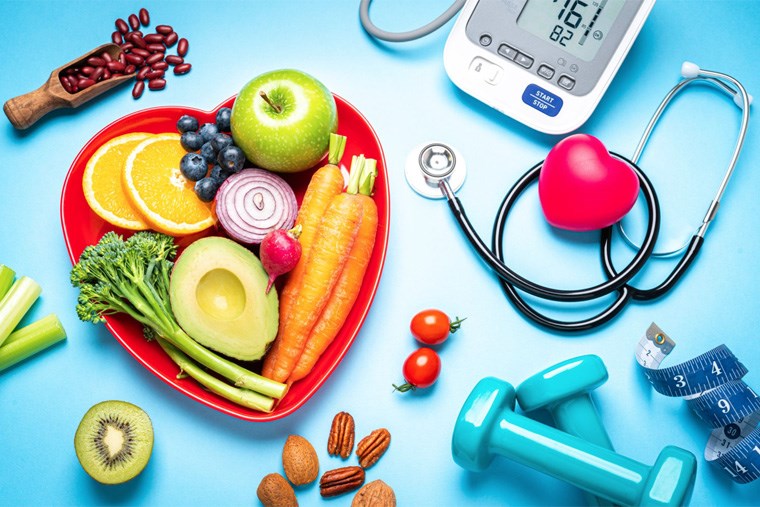To help you stay healthy, here’s a list of vitamins and minerals adults 55 and over should be taking daily, along with the benefits they provide.
Getting enough essential vitamins and minerals is a vital part of maintaining good health— especially as you age. Changing nutritional needs and dietary restrictions can affect your vitamin intake over time. This makes it challenging to get the nutrients you need to keep your bones and muscles strong and ensure that other body systems are working correctly. To help you stay healthy, here’s a list of vitamins and minerals adults 55 and over should consider taking daily, as well as the benefits they provide.
Health Canada provides recommended daily percentage values for a variety of vitamins and nutrients. Units are described as µg (microgram, which is one millionth of a gram) and mg.
Remember, however, that each person is different. One person may require more vitamin D, for example, than another. Our overview below can help you discover more about the nutrients you need, but always check with your doctor if you suspect a deficiency, or before any major dietary/lifestyle change.
Now, let’s take a closer look at some vitamins and minerals, and the levels Health Canada recommends. For our purposes, we will only be showing the daily µg or mg recommended for adults.
Vitamin A
Vitamin A protects vision, boosts the immune system, and helps the heart and lungs function properly. Food sources include spinach, eggs, fish, milk, beef liver, cantaloupe, mangos, and broccoli. 900 µg.
Vitamin B1 (Thiamin)
Vitamin B1 converts food to energy and helps regulate cell function. Food sources include whole grains, cereal, pasta, rice, legumes, seeds, nuts, pork, and fish. 1.2 mg.
Vitamin B2 (Riboflavin)
Vitamin B2 aids cell growth, development, and function. Food sources include asparagus, spinach, broccoli, eggs, organ meats, fortified cereal, bread, and grains. 1.3 mg.
Vitamin B3 (Niacin)
Vitamin B3 converts food to energy and regulates cell development and function. Food sources include poultry, beef, pork, fish, legumes, nuts, grains, and fortified cereal. 16 mg.
Vitamin B6
Vitamin B6 strengthens the immune system and helps with metabolism. Food sources include potatoes, starchy vegetables, fish, poultry, and organ meats. 1.7 mg.
Vitamin B12
Vitamin B12 regulates nerve function and helps red blood cells form. Food sources include beef liver, clams, fish, poultry, eggs, and fortified breakfast cereals. 2.4 µg.
Vitamin C
Vitamin C is a powerful antioxidant that helps prevent free radicals from harming body cells. It also helps wounds heal and enhances the body’s iron absorption. Food sources include oranges, orange juice, grapefruit, grapefruit juice, broccoli, cantaloupe, strawberries, tomatoes, and potatoes. 90 mg.
Vitamin D
Vitamin D aids calcium absorption to strengthen bones and help prevent osteoporosis. It also helps the immune system fight off bacteria and viruses, supports muscle function, and helps nerves transmit messages between the brain and body. Food sources include milk, fortified cereal, orange juice, yogurt, salmon, tuna, and other fatty fish. 20 µg.
 katleho Seisa via gettyimages.com
katleho Seisa via gettyimages.comVitamin E
Vitamin E protects the body from free radicals as an antioxidant. It helps open blood vessels to prevent clots and boosts the immune system to fight bacteria and viruses. Food sources include vegetable oils, wheat germ, nuts like peanuts and almonds, broccoli, and spinach. 15 mg.
Vitamin K
Vitamin K helps blood clots and promotes bone health. Food sources include leafy green vegetables such as lettuce, kale, spinach, broccoli, blueberries, figs, meat, cheese, eggs, and soybeans. 120 µg.
Calcium
Calcium helps keep bones and teeth strong and healthy. It also helps muscles move and nerves carry messages between the brain and body. Furthermore, this powerhouse mineral helps blood vessels move blood throughout the body and releases critical hormones and enzymes that support multiple body functions. Food sources include milk, yogurt, cheese, kale, broccoli, canned sardines and salmon, most grains, and other fortified foods as labeled. 1300 mg.
Folate
Folate helps the body make DNA and genetic material. Food sources include asparagus, brussels sprouts, spinach, oranges and orange juice, nuts, beans, and peas. 400 µg DFE (daily folate equivalates).
Magnesium
Magnesium regulates nerve and muscle function, blood pressure and blood sugar levels, and helps make protein, DNA, and bone. Food sources include legumes, nuts, seeds, spinach, milk, yogurt, and fortified cereals. 420 mg.
Potassium
Potassium assists multiple vital functions, including heart and kidney function, nerve transmission, and muscle contraction. Food sources include prunes, raisins, bananas, orange juice, potatoes, spinach, broccoli, acorn squash, kidney beans, soybeans, lentils, meat, fish, and poultry. 4700 mg.
Food v. Supplements
Whole, natural foods are the best way to get the nutrients you need, however, aging-related changes such as tooth loss, chronic illness, and changes in appetite can impact the amount of nutrients a body absorbs or a person’s ability to eat certain foods. In this case, older adults may need to take a vitamin or mineral supplement to get what they need to maximize their health and stay as active as possible.
Remember: You should always consult your physician before making any dietary changes, including vitamin and mineral supplements. Taking more than recommended amounts may be harmful.
 This story was made possible by our Community Partners Program. Thank you Didsbury Dental for helping to expand local news coverage in Alberta. Learn more.
This story was made possible by our Community Partners Program. Thank you Didsbury Dental for helping to expand local news coverage in Alberta. Learn more.


